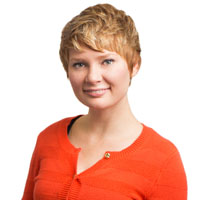Tax Reform
Now the minority in both chambers of Congress, Democrats took offense this week, announcing a new plan to reduce economic inequality. The proposal, introduced by Rep. Chris Van Hollen (D-Md.), would reduce the tax bills of couples earning less than $200,000 and create a “saver’s bonus” of $250 for workers who set aside at least $500 throughout the year, a proposal first articulated by the Asset Building Program. Lori Montgomery and Paul Kane of The Washington Post described how Democrats expect to finance the bill: “The windfall — about $1.2 trillion over a decade — would come directly from the pockets of Wall Street “high rollers” through a new fee on financial transactions, and from the top 1 percent of earners, who would lose billions of dollars in lucrative tax breaks.”
Sean McElwee and Lenore Palladino of Demos expressed support for this method of paying for middle-class tax breaks. They pointed to the potential stabilizing effect it would have on financial markets: “High-frequency trading creates systemic risk. Taxing it would reduce the incentive for the financial sector to chase new bubbles, driving out "noise traders" who make markets more volatile without improving capital intermediation (the purpose of the financial system).” The Roosevelt Institute’s Richard Kirsch believes the Van Hollen’s plan marries two important American principles: growth and fairness. According to Kirsch, “Americans believe we need economic growth, but they are more likely to place the blame for stagnant wages on the super-rich and powerful who game the system at their expense. That is why they told pollsters they prefer "an economy that works for all of us, not just the wealthy" over "growing the economy" by 22 points.”
State Taxes
The Institute on Taxation & Economic Policy made headlines this week with its release of a report that assesses the fairness of state and local tax systems. Its major finding: “Virtually every state tax system is fundamentally unfair, taking a much greater share of income from low- and middle-income families than from wealthy families.” The Washington Post’s Niraj Chokshi delved into the data, noting that “on average the bottom fifth of earners pay proportionally twice as much of their incomes in state and local taxes as the top 1 percent.” He went on to say, “Such systems that are skewed toward the poor are also less stable in the long run, given the decades-long trends of growing income inequality.” MONEY’s Jacob Davidson covered a section of the report called “The Terrible Ten.” Washington State topped the list with its poorest 20 percent paying 17 percent of their earnings in taxes, while the wealthiest 1 percent pays a mere 2.4% of their incomes.
Education
Economic inequality has an adverse impact on the educational outcomes and opportunities of low-income students. Rachel Berger summed up the issue in The Hill by saying “our education problem is really a problem of poverty.” She cited a Columbia University study that found “the United States outperforms every single country in the world when controlling for schools with a child poverty rate of less than 20 percent.” The Center Foundation’s Clio Chang discussed measures that could reduce child poverty in America – hovering around 20 percent – specifically focusing in on the idea of cash allowances for people of low-income.
When poorer students do succeed in school and pursue post-secondary education opportunities, they are often met with additional challenges – particularly at top institutions. Bloomberg’s Janet Lorin wrote on how selective universities are filling more of their classes in early-admissions programs that favor wealthy families. “Families that need financial aid often wait for the regular round, which starts this month, so they can compare aid offers. Because early-decision programs require a binding commitment to one school in November and boost admissions chances, many slots are taken before lower-income students even apply.”
Retirement Security
Justin King and Elliot Schreur of New America’s Asset Building Program wrote on how new retirement savings plans, such as myRA and Illinois’ Secure Choice Savings Program, might help ordinary Americans grow their assets without sacrificing emergency savings. Writing for Reuters, columnist Mark Miller digs into Secure Choice and wonders whether the law’s opponents are afraid the bill will fail, or afraid that it might succeed.
Quick Hits
It was a busy week for our friends at CFED. They debuted their Taxpayer Opportunity Network, which will attempt to coordinate and represent the community tax preparation field. CFED also launched a new web resource, aimed at documenting the growth of Child Savings Account initiatives across the country.
The Center for American Progress released the report of their Commission on Inclusive Prosperity. David Leonhardt of the New York Times called the report, which offers ideas to combat lagging wage growth in America, "deeply serious."
The Washington Post reports that a majority of American school children now live in poverty. Darren Walker, the President of the Ford Foundation, makes a moving and personal case for increasing investments in children in Lyndsey Layton’s article.
Annamaria Andriotis reported that Bank of America and J.P. Morgan Chase, two of the nation’s largest lenders, will provide some customers with their FICO scores for free.
